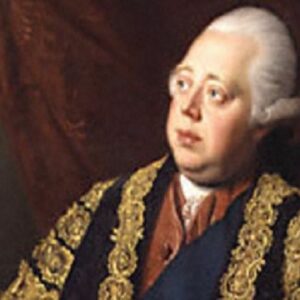Frederick North, popularly known by his title name Lord North, was Prime Minister of Great Britain from January 1770 until March 1782. He served in the ministries of the Duke of Newcastle and Lord Chatham, advancing to the post of Chancellor of the Exchequer by his hard work and diligence. He gained the favor of King George II, who admired his moderation in politics. He led the band of royal friends that King George II had cultivated in the Commons. As Prime Minister, he led Britain during the majority of the American Independence War. As a result of the American Revolution, the American colonies of Great Britain were lost. This defeat was the catalyst for his resignation as prime minister.
Childhood & Adolescence
Frederick North was born in London on Albemarle Street as Lord North to Francis North, 1st Earl of Guilford, and Lady Lucy Montagu. He spent the majority of his youth at Wroxton Abbey in Oxfordshire.
After his mother’s death in 1734, he was cared for by his stepmother until her death in 1745, when he was thirteen years old.
After completing his preparatory schooling, he attended Eton College between 1742 and 1748. Subsequently, he was admitted to Trinity College, Oxford, where he received an MA in 1750.
After completing his studies at Oxford, he toured Europe with his half-brother Lord Dartmouth. He traveled to various cities, including Leipzig, Vienna, Milan, and Paris. Only in 1753 did he return to England after studying at Leipzig University.
Lord North’s Career
In 1754, he began his political career by being elected unopposed as the Member of Parliament for the Banbury seat. From 1754 through 1790, he served as a member of parliament.
In 1759, he was appointed as the government’s junior Lord of the Treasury. Due to his outstanding administrative and parliamentary abilities, he was well-liked in his position.
He was successful in passing a forceful motion against John Wilkes, who had assailed the government by publishing a slanderous article about the Prime Minister and the King. The motion received 273 votes against 111, resulting in Wilkes’ expulsion.
In 1765, when the government was headed by the Whig leader Lord Rockingham, he resigned to serve as a backbencher MP for a year, primarily out of dread of being associated with the Whig administration.
As Pitt resumed his role as head of the government, he resumed his status as an MP. He was later appointed Joint Paymaster of the Forces and Privy Counsellor.
In 1767, he took up the office of Chancellor of the Exchequer from Charles Townshend. The next year, due to the departure of secretary of state Henry Seymour Conway, he also assumed the position of leader of the House of Commons.
On January 28, 1770, two years after the Duke of Grafton’s resignation, he created his own administration. The majority of his cabinet ministers were Conservatives.
During his tenure as prime minister, he enlarged the British Empire by acquiring additional territory and continents.
In 1770, he experienced early success during the Falklands Crisis when Britain asserted its superiority over France and Spain and thwarted Spain’s effort to take the Falkland Islands. He appointed Lord Sandwich as the First Lord of the Admiralty by leveraging his popularity.
During the American War of Independence in 1775, he launched Coercive Acts in Britain, which suggested punitive legislation against Bostonians. However, his action backfired and instead inflamed the colonists, resulting in a conflict that he fought with half his effort.
In an effort to end the war, he submitted a Conciliation Plan, but it was rejected because the colonies desired complete independence. Following this, he announced his retirement, which was a shock to the opposition, who had planned a debate in the chamber.
In 1783, he returned to power as Home Secretary as part of a Fox-North alliance nominally led by the Duke of Portland. However, because King George III despised Fox’s radical and republican beliefs, he never served in government again following the ministry’s fall in 1783.
He talked poorly of his successor, William Pitt the Younger, who defied all odds and remained in office for twenty years, so destroying his chances of ever regaining the presidency.
In 1790, just before replacing his father as the 2nd Earl of Guilford, he resigned from Parliament.
Awards and Accomplishments
From birth until his death, he carried a variety of titles, including The Honorable Frederick North, Lord North, Lord North, MP, and The Rt. Hon. Lord North, MP, The Rt. Hon. Lord North, KG, MP, The Rt. Hon. Lord North, KG, and The Rt. Hon. The Earl of Guilford, KG, PC.
Personal History and Legacies
He wed Anne Speke in May of 1756. George Augustus North, Catherine Anne North, Francis North, Lady Charlotte North, Frederick North, and Lady Anne North were the couple’s six children.
After spending his final years in the House of Lords, he died in London. He was interred at Wroxton’s All Saints Church. He was replaced by his eldest son, who took over the Banbury constituency and inherited his father’s title in 1792.
Estimated Net worth
Unknown.
Trivia
This British Prime Minister commanded his country during the American Revolution, resulting in the loss of American colonies.


